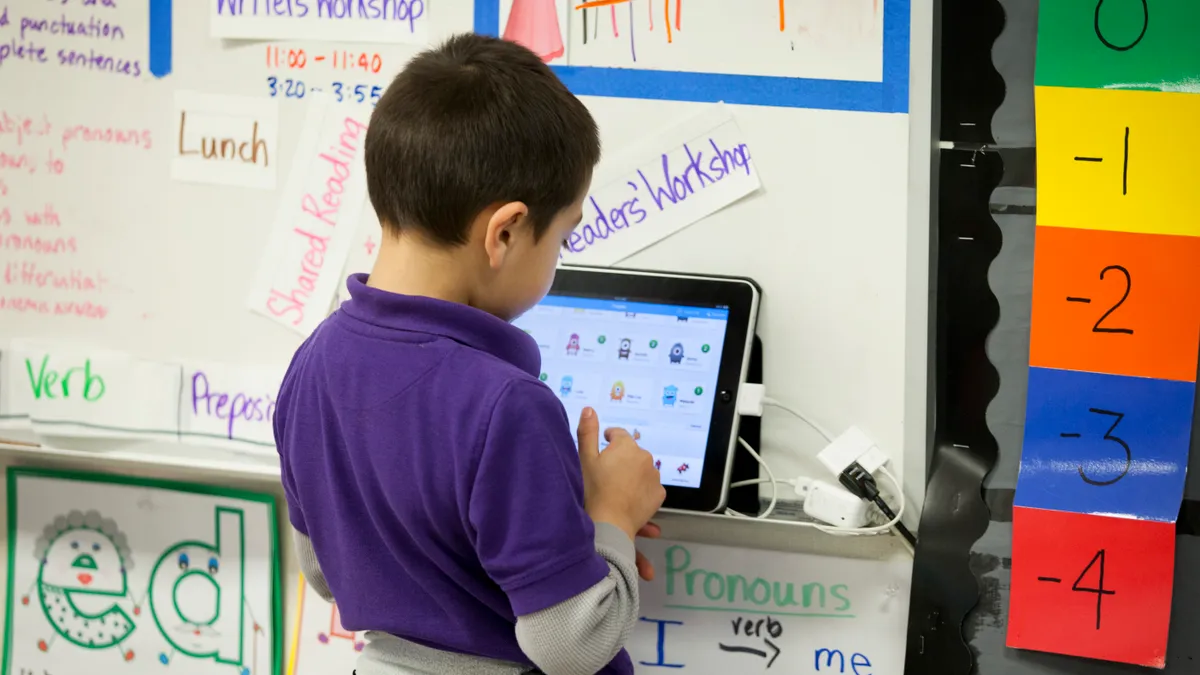Dive Brief:
- Along with teaching students how to effectively use digital tools, teaching them to be responsible citizens in the digital realm has become increasingly necessary, and Manhattan-Ogden Public Schools (Kan.) Director of Technology Mike Ribble shares several tips with EdTech: Focus on K-12.
- Ribble's advice comes down to three maxims: being safe by protecting yourself and others, being savvy by educating yourself and others, and being social by respecting yourself and others.
- Essentially, these maxims mean teaching students to recognize efforts to steal personally identifiable data and to avoid them, to balance online hours with time spent interacting with people face-to-face, to think critically about the veracity of online content, and to communicate effectively and respectfully.
Dive Insight:
Since its inception, digital citizenship has often been included in social-emotional learning efforts, but there's more to it beyond those aspects. There are cybersecurity, reading comprehension and critical thinking layers to it, as well.
Without understanding potential cybersecurity threats like malware, students can open themselves and the district up to significant data breaches. Education, for example, faces the highest ransomware attack rate of any industry due to the amount of sensitive data available and the relative lack of security measures compared to other fields. That alone highlights that it is imperative to teach students how these attacks are carried out, and to run test drills that help them better identify threats.
Additionally, the influence of "fake news" in the 2016 election cycle has reinforced the idea of digital literacy and the need for students to understand what is and isn't reliable.
But the social-emotional aspects of digital citizenship also remain vital. The internet can give users a false sense of anonymity and detachment from consequences, with the digital space becoming bullying's modern frontier. The consequences exist, though, and the importance of empathy and compassion must remain front-and-center in these lessons.
A common approach has been to put online posts in the context of a "digital footprint," but some question whether that analogy goes far enough, saying that the ability of posts to stick around in some form or another practically forever makes them more akin to a "digital tattoo." Regardless of how it's described, starting those lessons as early as possible can instill a greater sense of responsibility in students over the long-term, better preparing them for when they reach grades with potential 1:1 device programs or greater device use in general.













